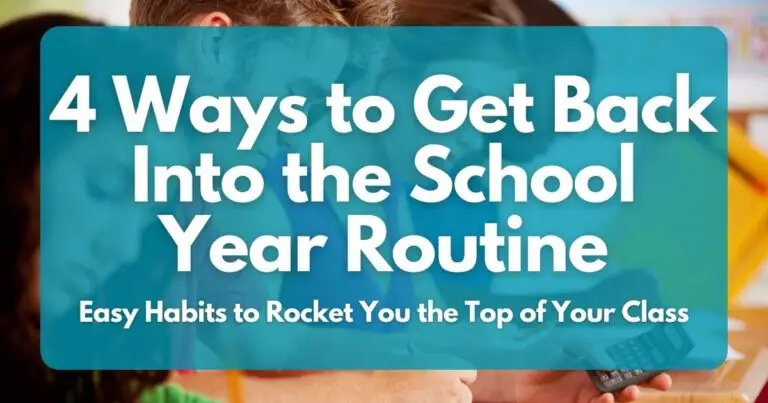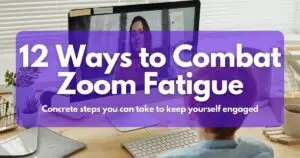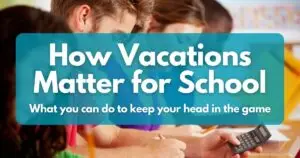SUMMARY:
Pete shares four tips to help students get back into the school year routine. He advises students to learn the rules and expectations in each class, over-prepare for quizzes and tests early on, build relationships with teachers by attending office hours, and consistently use planning tools to stay organized. These tips will not only improve grades but also develop important skills for college.
TRANSCRIPT:
Hi, everyone. It’s Pete from Achieve Tutorials, just back from a summer hiatus. And if you’re like me, you’re finding some challenges getting back into the school year routine after a summer doing whatever fun things you were doing. So here’s a list of the top four things I recommend my students do to get themselves back into that school year routine.
0:00:24 Number one, learn to play the game in each class. Remember that every teacher has a different set of rules, a different set of expectations, and you need to spend some time figuring out what those expectations are so you can give the teachers what, on homeworks, in class participation, on quizzes, on tests, on papers. These are all really important aspects of getting good grades, performing well in a particular class. So spend some time thinking about and figuring out how to play the game in each class.
0:00:52 Number two, in the beginning of the year over-prepare for quizzes and tests. You want to make sure that you’ve got the knowledge, you have the practice, and that you are putting the extra time in in the beginning of the year so that you can figure out what you need to do in the future. This has two really positive effects. The first is that you’re going to get better grades early in the year. And two, your teacher is going to think that you’re a better student than you are, or a very good student, as good a student as you are at the beginning of the year, and they will reward you for that as the year goes on. But it also gives you the opportunity to figure out where you can cut down on that study and become more efficient later in the year, because you can say, oh, I spent all this time studying, say, the textbook. My teacher didn’t pull a lot out of the textbook for the test. It was all what we did in class, or vice versa.
0:01:39 Okay, number three, this plays along the same lines. Go to office hours. Go see your teacher. Start building relationship with your teacher. Going to office hours not only lets a teacher know that you’re interested in their class, that you’re engaged in their class, but it also prompts them to give you good information and steer you in the right direction, snd just having a good, positive relationship with your teacher is really good practice for when you get to college where professor relationships are really important. Okay?
0:02:05 And number four, consistently use planning tools. Whatever planning tools you use, whether it’s a physical planner or some app on your iPhone or an iPad, make sure you use those tools consistently, that you are planning well ahead. You’re looking a week, two weeks, maybe even a month ahead, and planning your study time so you can be on top of everything and nothing will slip through the cracks. This executive function is going to only help you and you really need this skill when you get to college, even more than you do in high school. 0:02:38 Okay, that’s it. Four, go to tips for the beginning of the school year. Catch you guys later. Thank you for watching. And for more information you can go to our website for more videos in our blog or subscribe to our YouTube or Instagram feeds. And don’t forget, aim higher.






